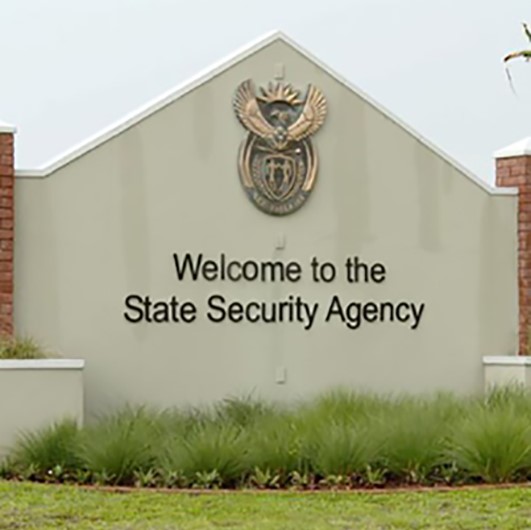
News

Leaked security brief spotlights anti-Israel lobby
NICOLA MILTZ
The top-secret document, titled “Growing Anti-Israel Lobbying: Security Implications for South Africa”, was written by the domestic branch of the SSA in September 2012.
It was leaked via news agency Al Jazeera, which together with the Guardian newspaper, published what came to be known as the “Spy Cables” in 2015.
The Spy Cables comprised a digital leak to Al Jazeera of hundreds of secret intelligence documents from the world’s spy agencies. They included documents written by global intelligence agencies including Israel’s Mossad, South Africa’s SSA, Britain’s MI6, Russia’s FSB, and others.
The SSA intelligence brief, a copy of which is in the possession of the SA Jewish Report, offers a glimpse into the effects of the rising anti-Israel lobby lead by the Boycott, Divestment, Sanctions South Africa (BDS-SA) movement, and the resultant security implications for the country.
The brief highlights a string of incidents having “an explicit anti-Israel slant” which took place in 2012. These incidents “failed to elicit a significant reaction from Jewish organisations in South Africa”, the brief states.
Instead, the community’s “frustration and anger” was manifested in concerns about “intimidation and the possible targeting of Jewish interests” in the country.
“Despite growing levels of frustration experienced by the Jewish community, no violent retaliatory threats have thus far been evidenced,” the report said.
It went on to list the “security and diplomatic implications” should the “status quo” worsen.
“The risk exists that an escalation in current anti-Israel initiatives in South Africa may significantly increase polarisation between the Jewish community and pro-Palestinian support groups in South Africa, resulting in isolated incidents of violence against Jewish interests.
“Although it’s to be expected that the Jewish community will continue to voice is disapproval through accepted constitutional means, there is a growing feeling within the local community that the anti-Israel sentiment is gaining momentum, and that Jewish interests could in future be targeted.”
The SSA said it knew about the activities of the Community Security Organisation (CSO), pointing out that, “Even though the CSO has not been linked to any violent action in recent years, it’s likely that the CSO will respond to any direct threat to Jewish interests.”
Other implications of increased anti-Israel sentiment included increased pressure by the pro-Palestinian lobby on the South African government to “harden its stance and impose economic and cultural sanctions against Israel”, which has since played out. Also, it spoke of the potential of a deterioration in diplomatic relations between South Africa and Israel if the government “intensifies its anti-Israel stance”, which has also played out.
“It’s expected that the Mossad will continue to approach the SSA aggressively on issues critical to Israel’s national security interests, such as planned terror attacks by Hezbollah against Israeli interests in South Africa,” according to the report.
The brief also predicted that relations with the United States could be affected. “Given the global geopolitical landscape and the fact that the US is a major ally of Israel, deteriorating diplomatic relations with Israel could put a strain on existing US/SA relations and jeopardise South Africa’s future participation in various global economic and development forums,” it said.
If the situation worsened, the report said, the implementation of stricter travel measures to Israel and Palestine could be imposed. Israel could impose stricter travel measures on South African nationals wanting to travel from South Africa to Israel and Palestine.
The intelligence brief concluded, “Although it’s expected that any counteroffensive by the Jewish community in South Africa and even Israel will be subtle and calculated in nature rather than violent or disruptive, the rising levels of frustration and anger within the Jewish community in South Africa should be noted.”
The brief details the anti-Israel incidents which took place in 2012.
Among them, it said, BDS-SA had “expressed its satisfaction” in August over the cancellation of a planned trip to Israel by a delegation of mayors and KwaZulu-Natal municipal employees aimed at facilitating contact with Israeli experts in the fields of agriculture, science, and technology.
According to the brief, during that year’s Israel Apartheid Week, pro-Palestinian groups hosted convicted terrorist Dr Abdul Aziz Umar, who was involved in the 2003 Café Hillel bombing that killed six Israelis and one Palestinian.
It mentions the controversial announcement by then Trade and Industry Minister Rob Davies to re-label products from Israel. Davies announced in May that year that products from the West Bank would no longer be permitted to carry a label saying “product of Israel”.
The University of KwaZulu-Natal cancelled a lecture by Israeli Deputy Ambassador to South Africa, Yaakov Finkelstein, after pressure from pro-Palestinian student organisations.
During the June 2012 African National Congress policy conference, delegates reaffirmed their intention to increase support for the Palestinians, and called for the boycott of Israeli goods, the report said.
It also mentioned the anti-Israel statements made by a number of representatives of the South African government. It suggested that should things worsen, there could be attacks on South African information technology and telecommunications infrastructure.
“It’s possible that Israeli nationals active in the IT and telecommunications environments can penetrate and deliberately compromise South Africa’s IT infrastructure,” the report said.
The report further concludes, “Current information doesn’t indicate the likelihood of any incidents of violence against Jewish interests in South Africa in the short term, but the situation will be closely monitored.”




